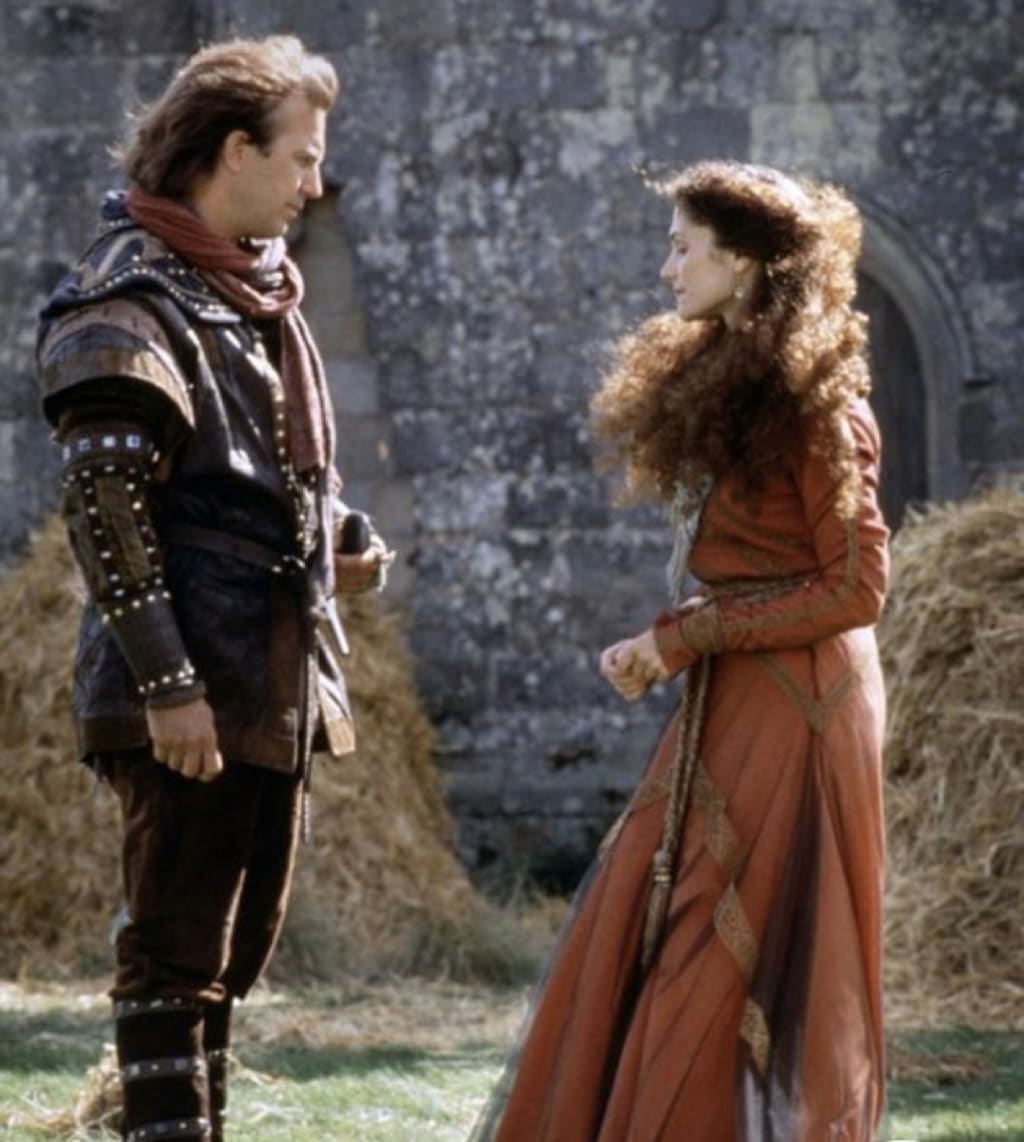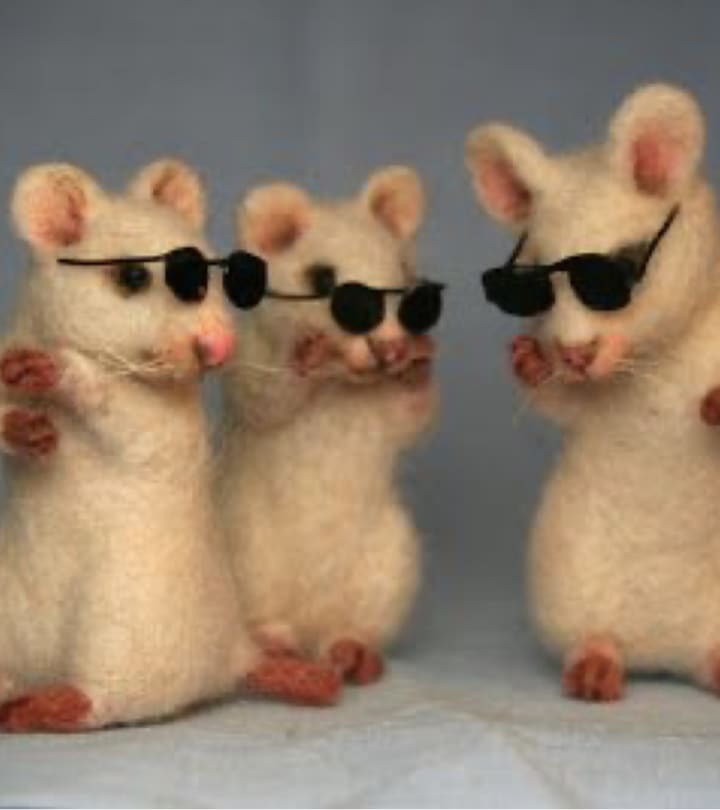Robin,Marian and the mice.
Robbing the Rich to feed the poor.

Robin Hood and maid Marian rode through the Sherwood Forest in Nottinghamshire, where the carriage carrying wealthy aristocrats halted abruptly in their path. The carriage was adorned with lavish decorations and bore the emblem of a noble family known for their extravagant lifestyle. Robin Hood, the legendary outlaw, and his beloved Maid Marian exchanged knowing glances, sensing an opportunity to redistribute wealth from the rich to the poor.
Robin Hood, renowned for his archery skills and his commitment to justice, stepped forward and addressed the startled aristocrats. "Good day, noble sirs and ladies. It seems fortune has brought us together today," he said with a charismatic smile.
The aristocrats, startled by the unexpected encounter, looked at each other nervously. One of them, a pompous lord, spoke up, "Who dares interrupt our journey through these woods? Identify yourself, knave!"
Robin Hood chuckled and replied, "I am Robin Hood, and these woods are my domain. I stand for the poor and downtrodden, seeking to rectify the injustices inflicted upon them by the wealthy like yourselves."
Maid Marian, a strong-willed and compassionate woman, added, "We implore you to consider the plight of the less fortunate. The wealth accumulated by the aristocracy often comes at the expense of those who toil without respite."
The aristocrats, though initially defensive, began to contemplate the words of Robin Hood and Maid Marian. Some among them, burdened by their conscience, felt a twinge of guilt. They were aware of the vast disparity between their opulent lifestyles and the struggles faced by the common folk.
Moved by the sincerity and conviction of Robin Hood and Maid Marian, a young lady from the carriage stepped forward. "You speak the truth, good sir," she said with a trembling voice. "We have been blinded by our privilege. Perhaps it is time to reassess our responsibilities as members of the aristocracy."
Robin Hood nodded approvingly. "I am pleased to see reason prevailing. If you truly wish to make amends, consider parting with a portion of your wealth to aid those in need. Together, we can bring about a more equitable society."
As the conversation continued, Robin Hood and Maid Marian offered guidance and insight, urging the aristocrats to use their influence and resources to effect positive change. Some of the aristocrats agreed to donate to charitable causes, while others promised to advocate for fairer laws and policies.
With a newfound sense of purpose, the carriage resumed its journey, but now with a reinvigorated commitment to justice and compassion. Robin Hood and Maid Marian watched as their actions began to sow the seeds of change, hopeful that their encounter would lead to a brighter future for the people of Nottinghamshire and beyond.
And so, Robin Hood and Maid Marian continued their ride through Sherwood Forest, ever vigilant, their hearts filled with the belief that even the most entrenched disparities could be rectified through courage, compassion, and the unwavering pursuit of justice.
The three blind mice ran through the fields, collecting the rice and stealing the nuts from the squirells when they thought no one was watching. These three mischievous mice, known for their blindness but sharp sense of smell and hearing, were always on the lookout for opportunities to satisfy their appetites.
As they scurried through the fields, their tiny paws pattering against the earth, they came across a group of squirrels busy gathering and storing nuts for the winter. The mice's eyes twinkled mischievously as they hatched a plan to steal some of the squirrels' precious stash.
With their nimble movements, the three blind mice approached the squirrels' hiding spot stealthily, relying on their keen senses to navigate the surroundings. They knew they had to be swift and silent to avoid detection.
One by one, the mice darted forward, snatching nuts from the squirrels' stockpile and quickly retreating into the safety of the tall grass. The squirrels, engrossed in their work, remained oblivious to the tiny thieves who were making off with their cherished nuts.
The three blind mice reveled in their successful heist, their whiskers twitching with delight as they clutched their ill-gotten gains. They scurried away from the scene, their hearts pounding with a mix of excitement and anticipation.

But little did they know that their actions had not gone entirely unnoticed. From a nearby tree, a wise old owl observed the entire spectacle. The owl, known for its wisdom and impartiality, decided to intervene.
With a graceful swoop, the owl descended upon the mice, causing them to freeze in their tracks. "Ah, the mischievous trio," the owl hooted, its voice carrying a tone of sternness. "Stealing from others is not an honorable path."
The three blind mice, startled and guilty, lowered their heads in shame. "We are sorry, wise owl," one of the mice squeaked. "Our blindness makes it difficult for us to find food, so we took what we could."
The owl's gaze softened as it listened to their plea. "I understand your struggle," the owl said, "but resorting to theft is not the solution. There are ways to find sustenance that do not harm others."
The owl then imparted its wisdom to the mice, teaching them about the importance of cooperation and seeking assistance from others. It explained that the fields and forests were abundant with food, and by forming alliances with other creatures, they could all benefit.
The three blind mice listened attentively, realizing the error of their ways. They expressed their remorse and vowed to change their behavior. From that day forward, they resolved to rely on their unique abilities to navigate the world, seeking nourishment in a more honest and respectful manner.
And so, the three blind mice learned the value of integrity and empathy. They became known not for their thievery, but for their resilience and willingness to adapt. They fostered friendships with other creatures, who in turn guided them to food sources and became their reliable companions.
Together, they explored the fields, helping each other and sharing in the bounties of nature. The three blind mice, once mischievous thieves, had transformed into humble beings who understood the importance of compassion, cooperation, and the inherent interconnectedness of all living creatures in the great tapestry of life, sharing the highway, while Robin Hood and Maid Marian continued their ride through the forest of Sherwood, their legend grew among the people. Tales of their daring exploits and their unwavering commitment to the cause of justice spread like wildfire, inspiring hope in the hearts of the oppressed.
The poor and downtrodden flocked to Sherwood Forest, seeking solace and support from the famous outlaw and his band of Merry Men. Robin Hood, with his exceptional archery skills and charismatic leadership, became a symbol of resistance against the tyranny of the rich and powerful.
In addition to their acts of redistributing wealth, Robin Hood and his band of Merry Men engaged in other activities to challenge the oppressive system. They disrupted corrupt tax collections, intercepted shipments of ill-gotten goods, and protected the innocent from exploitation.
Maid Marian, a vital part of Robin Hood's operation, used her intelligence and resourcefulness to gather information on the activities of the aristocracy. She was not just a damsel in distress, but a strong and independent woman who played an active role in the fight for justice.
Together, Robin Hood and Maid Marian became champions of the people, defending the rights of the common folk and ensuring that those who had been wronged found justice. They established a network of informants and sympathizers, working to expose the corrupt practices of the ruling class.
Their actions did not go unnoticed by the authorities. The Sheriff of Nottingham, a cunning and ruthless antagonist, dedicated himself to capturing Robin Hood and bringing him to justice. He employed spies and informants to gather intelligence on the outlaw's movements, but Robin Hood's knowledge of the forest and the loyalty of his supporters always seemed to stay a step ahead.
Robin Hood and Maid Marian's exploits continued to capture the imagination of the people, who saw in them a glimmer of hope for a fairer and more just society. Their legend grew beyond the borders of Nottinghamshire, spreading throughout the land and inspiring others to stand up against oppression.
In the end, the story of Robin Hood and Maid Marian transcended their individual actions. It became a tale of resistance, highlighting the power of ordinary people to challenge the status quo and fight for a world where justice and compassion prevailed.
Even to this day, the legend of Robin Hood and Maid Marian lives on, reminding us of the enduring appeal of their quest for a more equitable society. Their story continues to inspire generations, reminding us of the importance of standing up for what is right and fighting for a world where wealth and power are shared by all.
About the Creator
Dawn Earnshaw
Loves writing short stories and poems - learning punctuation and Grammar.ADHD
Enjoyed the story? Support the Creator.
Subscribe for free to receive all their stories in your feed. You could also pledge your support or give them a one-off tip, letting them know you appreciate their work.






Comments (1)
If only it was that easy to talk people into changing from bad to good. How wonderful this world would be, This was a great story of hope Dawn.